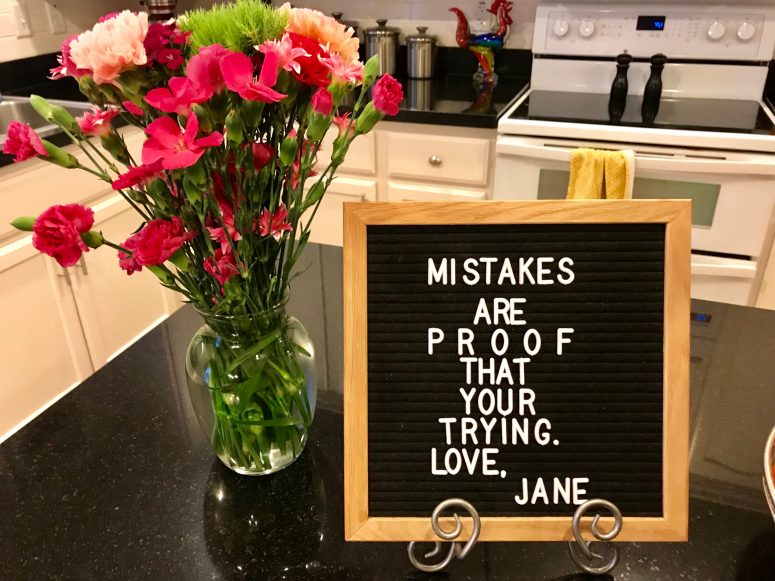
I made a boo-boo at work yesterday. The client I was working with was very understanding, forgiving, and even accepted some of the blame. But I felt pretty rotten about the oversight.
Now, I’m not a perfectionist because done is better than perfect. But I couldn’t shake my disappointment of letting them down. So much so that I continued to worry about my mistake into the night.
Then I awoke to the above new sign on display in our kitchen today, which was ironically crafted by my eight year old daughter. It immediately cheered me up. Partly because I learned some things from my mistake and instituted two immediate changes that will make me a better writer. But also because the sign reminded me that it’s okay to make mistakes.
Showing up really is half the battle. As my friend David says, “You gotta play some sour notes in order to make your sound sweeter.” I’m grateful of those simple truths that make improvement possible.
Thanks, Jane.
This story first published to blakesnow.com in 2018
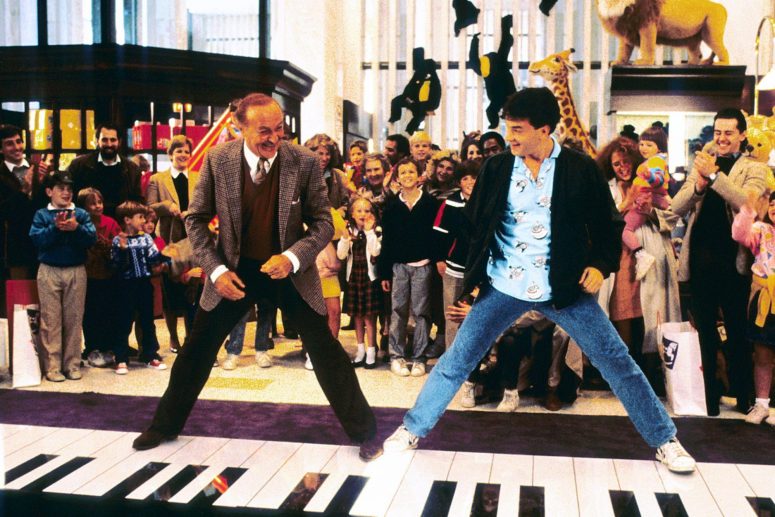
Courtesy 20th Century Fox
$375 an hour is a lot of money. It was even more money 20 years ago when a bougie investment bank paid me that to share my honest opinion with some of its biggest customers.
Many people don’t know this, but I got my start in writing covering video games of all things. It was the ideal subject for an early twenty-something like me. I threw myself into the “work,” was one of the most prolific tech bloggers for AOL (aka America On-Line), and had a blast attended game conferences, interacting with readers, and crafting sentences for a living. It was a lot like Tom Hanks character from Big. I was getting paid to play with toys and critique commercial art.
The pay wasn’t great. But when paired with magazine freelancing, it was enough to support my small, apartment-living family. I’m smiling right now just thinking about it. Continue reading…
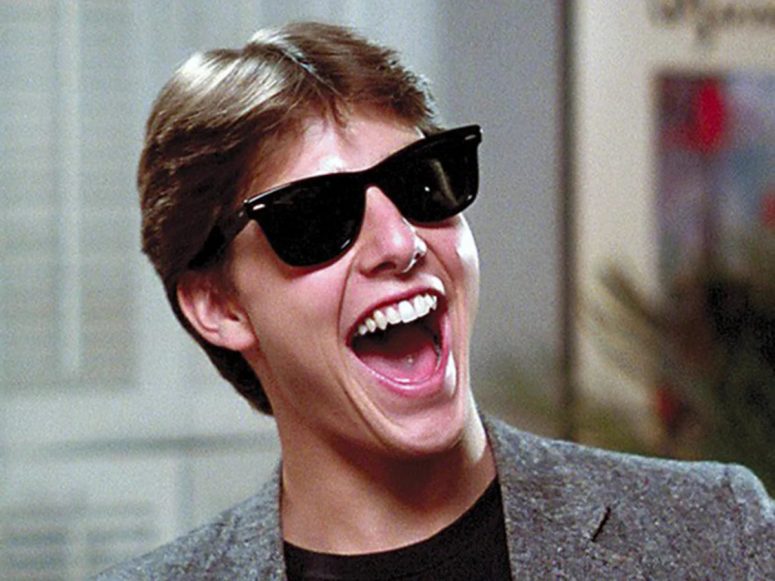
Courtesy Warner Bros.
I’ve been writing full-time on a professional basis for almost two decades. In that time, I’ve written two books, hundreds or reports, and thousands of articles.
To publish that amount of work, I’ve also committed tens of thousands of mistakes. Maybe more. My last book alone contained thousands of errors after my editor bled all over it. On top of that, I was born with bad diction, and am subjected to nasty hate mail after some of my mistakes.
Why am I telling you this?
Because in both life and writing, mistakes are an everyday thing. In fact, the latter happen every minute. That’s because language and communication are incredibly complex, even for professionals like me who get paid to write fewer mistakes than you do. The sooner you accept, if not embrace, mistakes, the better writer you’ll be. Continue reading…
I’m a big believer in the four burners theory, which I first endorsed in Log Off: How to Stay Connected after Disconnecting.
Here’s how I explained the idea in chapter 7: “Of all the research I’ve reviewed over the last decade, The Four Burners Theory is the leading cause of dying with regret. The theory argues that an individual’s life can be divided into four quadrants, or “burners,” of a conventional stove: family, friends, health, and work. “In order to be successful you have to cut off one of your burners,” the theory states. “And in order to be really successful you have to cut off two.”
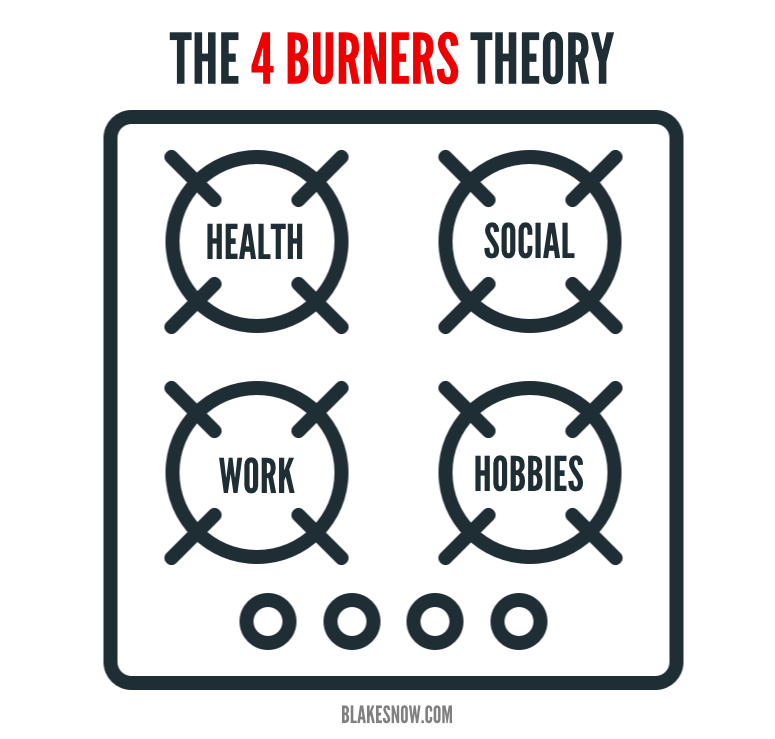
But since publishing the book, I’ve slightly updated the more traditional definition of the four burners. I do this by merging friends and family into a single “social” category, which many people already do, while adding “hobbies,” which is a huge area that humans devote time to. In that way, the updated burners cover all of your bases.
The same gas limits still apply, of course. If you want to be iconic at the expense of others, pick just one and jack up the heat (think: Steve Jobs). If you want to be great, pick only two burners and run ’em hot. If you want to be good, pick three burners and cook moderately. If you want to be well-rounded and multi-dimensional, slow burn all four.
The choice is yours. 🔥
 It’s not rocket science. To get the most of your day, we must do the following:
It’s not rocket science. To get the most of your day, we must do the following:
- Live by a daily prioritized calendar.
- Surround yourself with positive people by shunning toxic ones and resolving tensions directly.
- Break large tasks into smaller chunks (i.e. write chapters not books).
- Do work you can be proud of while limiting distractions (i.e. email, social media, doomscrolling, mindless diversions)
- Celebrate successes and overcome challenges with positive thinking.
Those are the most fulfilling habits I’ve adopted over the years, many of which are featured in Caroline Webb’s helpful How to Have a Good Day.
Although Webb spent too much time rehashing Kahneman’s groundbreaking Thinking Fast and Slow, I appreciated her earnestness in helping others.
Her formatting was also a little blocky, but the message rings true: “Studies have found we can reap immediate intellectual and emotional dividend from investing in exercise and sleep, or even from taking a moment to breathe deeply, smile broadly, and stand a little taller.”
TL;DR: Attitude is everything.
 I interviewed nearly two dozen experts this month (friends and strangers alike) for advice on my upcoming articles, new book, new nonprofit, and even new record. I cannot tell you how much I learned, and how many unseen rocks I was able to overturn with these empowering discussions.
I interviewed nearly two dozen experts this month (friends and strangers alike) for advice on my upcoming articles, new book, new nonprofit, and even new record. I cannot tell you how much I learned, and how many unseen rocks I was able to overturn with these empowering discussions.
Most of the people I spoke to donated an hour or more of their time. Several expressed a desire to talk further in the coming weeks. All of these people are busy building things and chasing their own dreams, so it’s surreal to have them be so generous with their limited time.
As an explanatory writer, I’ve always asked a lot of questions of people who are smarter than me. But in the last couple of years, I’ve made it a point to ask even more people for their advise and mentorship on the mountains I’m trying to climb.
While a handful of people respectfully decline, I’d say over 90% willingly speak to me, which is a powerful witness of humanity’s collaborative spirit. “It never hurts to ask” has blessed my life and work more times than I can count.
I’m thrilled and honored to be on team human.
I don’t always study philosophy, but when I do, I make it count.
Case in point: A friend and I were recently discussing the human condition over email. Exhilarating stuff, I know. I’ll skip to the best part.
Basically, we decided that humans struggle to internalize both complex and simple realizations. Complex ones because they’re harder to grasp, and simple takeaways because we’re usually too distracted by temptations, desires, and pleasures to see them through, even if we believe in them (or so argues Aristotle; more on him later).
At this point, I asked my buddy, “So if humans struggle to comprehend both complex and simple ideas, what in the HELL are we good at?”
His reply, “Entertainment. And nothing else.” Full stop. The gravity and strategic double periods of his remark made me do this:
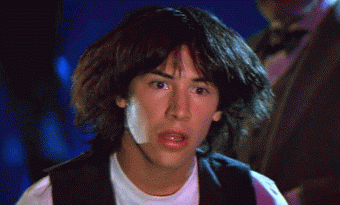
MGM Studios
At which point I enrolled in a 36-course undergraduate class from Smith College. Not exactly. But I did download the audible version of the class, The Meaning of Life: Perspectives from the World’s Greatest Thinkers, from Amazon!
Having already graduated (go, fight, win!), I did this solely for my own enlightenment. Little did I know how much impact professor Jay Garfield’s masterful curriculum would have on my worldview, existential outlook, and shared beliefs with others.
Here’s what I learned: Continue reading…
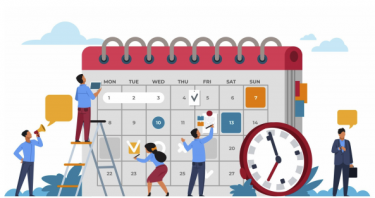
If you’re able to organize your life without a calendar, I have two things to say: 1) You are a miracle; and 2) The following does not apply to you.
For everyone else, I have some proven advice that will help you get the most from your daily, weekly, monthly, and even annual schedule, while helping you free up precious time and prioritize things that are more important to you.
In no particular order, they are as follows:
Continue reading…

Several years ago, I talked with my wife about working Monday–Thursday only if I could hit my income goal. This was incredible motivation. So much so that I hit my target some 8 months later.
For the next 18 months, I didn’t work a single Friday. Maybe an emergency email here and there, but never more than a few minutes. I didn’t check my inbox, make a call—nothing. It was professional and personal bliss.
My wife and I went on dates, played hooky that day, and spent more time with our children during “early release” Fridays. It was awesome.
Sadly, I got complacent and my income dropped. So I started working Fridays again to build it back up in recent years. Continue reading…

It’s wonderful to see pandemic world sprouting in more ways than one this spring. I’m not sure what the future holds, but it sure does feel like society turned a corner.
In my own village, here’s what I’m excited about right now: Continue reading…
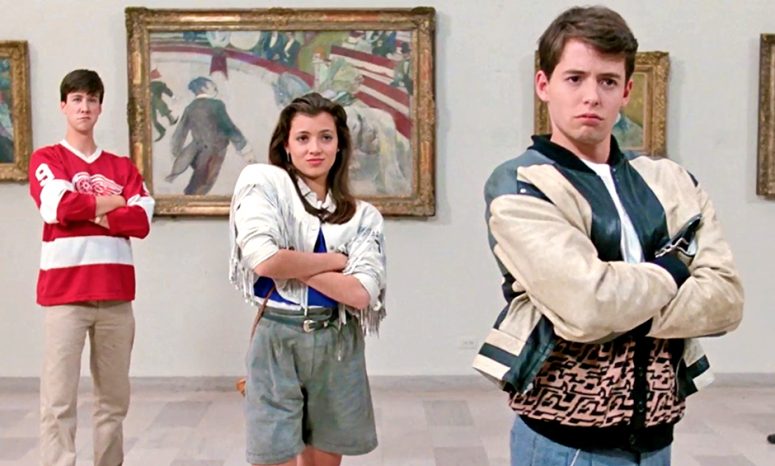
Rescue Time recently published a data-filled article on improving focus in a restricted world that’s still sorting itself out. Although their recommendations (below) aren’t applicable to everyone, the following five certainly are:
- Develop an ‘indifferent’ attitude to the things you can’t change
- Deprioritize tasks that are bringing you stress without any return
- Rebuild your passion and curiosity after burning out
- Use the ‘scientific method’ to find your ideal working habits
- Create hard boundaries on excessive emails, all-day Zoom calls, and late-night work
I learned the first lesson in anger management. Spoiler alert: this really works and has enabled me to let go of my anger associated with what I believe to be draconian restrictions. The last point I learned while developing my first book. The better boundaries we set, the better we’re able to nurture all of our talents and needs.
As for the rest, I highly recommend you try them, namely quitting habits that aren’t doing anything for you, trying new things when your old routine no longer works, and trying new approaches to your work before giving up or keeping the ones that have a positive impact.

Courtesy Shutterstock
Do you know what happens when world-class athletes stop taking time-outs? Their body slows down and they start making bad decisions. Anyone who’s every played competitive sports or even performance art already understands this truth.
And yet when it comes to office work, many of us overlook the importance of regular breaks. We mistakenly assume that just because we’re not exerting our bodies, we don’t need rest. But breaking isn’t just for people who tax their bodies for work, it’s for anyone who thinks and makes lots of decisions—you very much included.
To that end, here are 5 ways regular breaks can help you work smarter, faster, and even longer: Continue reading…

Wikimedia Commons
PROVO, Ut. — Want to get ahead in this world? Work lots of extra hours — even nights and weekends — experts say, and it will all be worth your while.
“It’s easy to forget what’s most important in life,” says Bill Loney, a certified life coach who hasn’t quite made it in life yet. “Family, friends, and social activities that can often inspire and enrich the life of an individual… these are all distractions in getting more work done,” he adds.
Emma Royds, who hasn’t stopped looking at her smartphone every five minutes for three straight years, councils that most people actually die wishing they had spent more time — not less — working. “People never regret working too much,” she says. “My neighbor opted to do adventurous, social, and fitness-related activities with family and friends in his spare time.
“Now 80, he told me recently he really wishes he would have spent more time on TPS cover sheets, obsessively trying to turn his company into the next big thing, and reading email during every waking hour of his life. It’s kind of sad, really.” Continue reading…
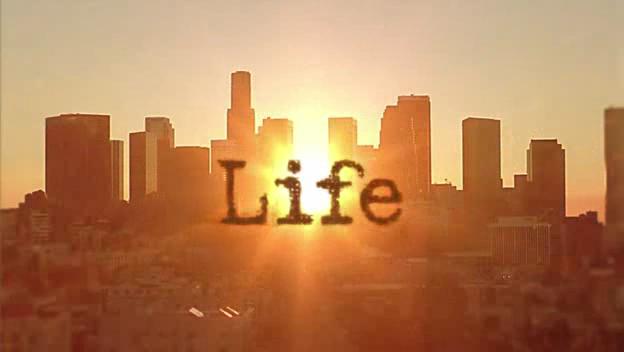
Here’s some scientifically tabulated advice. They’re called the top five regrets of the dying. In short, a nurse that took care of lots of people on their deathbeds asked and recorded their most common regrets. They are as follows, along with my pithy commentary: Continue reading…
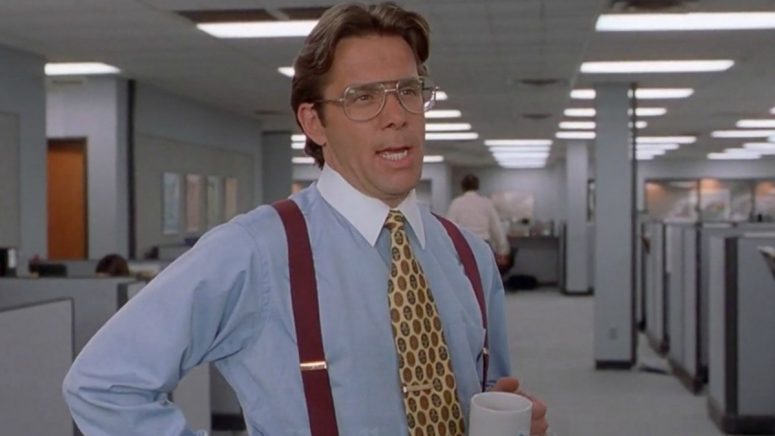
I graduated from college at a time when “Casual Fridays” were a thing. This was before Silicon Valley established the “casual everydays” that most offices now enjoy—hoodies, jeans, t-shirts, and even activewear and joggers in some cases.
As a senior, I was invited to interview with a large national company that was coming to campus. I wasn’t particularly fond of the company, but I was flattered they had reviewed my resume and wanted to speak to me (after graduating, I would forgo employment altogether to work for myself, but that’s another story).
When the interview time came, I entered a designated office on campus and met a recruiter in his mid 40s under drab fluorescent lighting. He didn’t look particularly happy. In fact, he looked rather miserable. Obviously would rather be home with his family than interviewing some undergrad like me in some far away city. Continue reading…

Me at my desk. Photo by Lindsey Snow
I was recently on a podcast to talk about my education and career path towards becoming a full-time freelance writer for the past 16 years. If you have 30 minutes to spare, I hope you enjoy my remarks. If you don’t have that much time, the short answer is lots of luck and persistence. Either way, I’m still pinching myself.
Thanks for having me on the show, Doug.
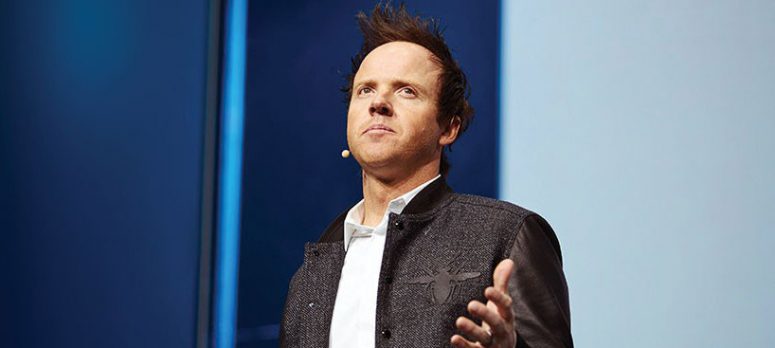
I recently enjoyed this commencement speech by Ryan Smith and hope you do too. It’s sweat advice on being “all in” in work, family, and our underlying beliefs.
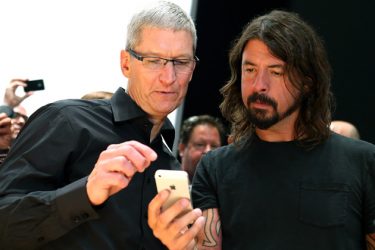 What does it mean to “work smarter, not harder”?
What does it mean to “work smarter, not harder”?
Leading research has the answer. It is this: unconscious (or otherwise subconscious) thought is often better at making inspired decisions than our conscious thought.
In that way, those who work smarter, not harder, let their subconscious go to work. They don’t sit in front of a perplexing problem for prolonged periods of time, forcing themselves to find a solution, even if they’re not in the right mental state to solve it. They let their mind breathe.
Let me give you an example. I was recently faced with an important personal decision that seemingly needed to be made immediately without accurate information being available. I was feeling social pressure to make a decision that very afternoon.
Instead of doing that, I went for a walk by the river without directly thinking about the concern. I took a break, both consciously and presently. When I returned 20 minutes later, I felt refreshed. My mind felt clear. Only moments after arriving home, I decided what to do (something I hadn’t first realized) and I felt confident in my decision.
In hindsight, I believe I made the smarter and right decision. But only because I allowed my brain to work smarter, not harder. As we temporarily walk away from our problems, we let your unconscious mind do much of the heavy lifting. Doing this actually allows faster problem solving, while avoiding the “wheels spinning in the mud” syndrome that too many people succumb to.
At least that’s been the case for me. You should try it. All the smart kids are doing it.
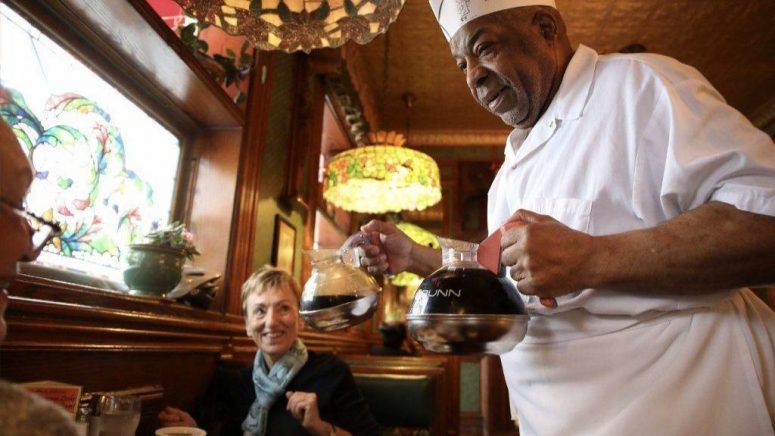
Courtesy Chicago Tribune
I read a thought-provoking story recently about Othea Loggan, a Chicago man who has bussed tables at the same restaurant for 54 years. He still works there today, earning just under $3 more per hour than minimum wage. With tips and annual bonuses, it’s estimated Loggan earns $14 an hour bussing the same tables he has for over five decades.
Unlike most entry-level bussers, Loggan gets five weeks vacation per year and works at a place he seems to really enjoy. Like every other busser, he gets no retirement or health insurance, however.
Despite all of this, Loggan (and his full-time working wife) raised a family, bought a house, and is seemingly happy, or at least he isn’t verbal about expressing any regrets. In fact, his son says as much. “My father is old school — never complains about nothing, never. My mother too. There were times it was hard to get food on the table, and they did not complain. But he got this job, he did it well, held on to it, and there needs to be a lot of respect for someone like that.”
The chef that has worked with Loggan for more than five decades says the same. “I think Loggan just decided to be a busboy. He is content. It’s all he wants. So I ask — isn’t that OK?”
It’s not okay, implies author Chris Borrelli. Continue reading…

Ryder Lake, Utah courtesy Blake Snow
Many of us spend the majority of our time indoors, breathing stale air, working under artificial light, and staring into glowing screens. While none of these things are toxic, at least in moderation, they can have a monotonous, if not negative, effect on both our performance and overall health, research shows.
What’s the antidote? More outdoors. Namely, spending more time walking in the woods, hiking in mountains, being near bodies of water, and simply just spending time in nature, under the sun, and breathing fresh air. Here’s the science behind the latest findings. Continue reading…
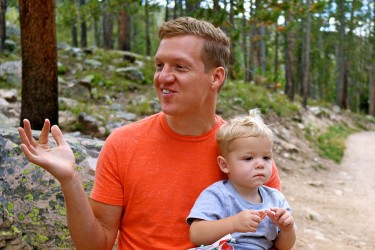
Photo: Lindsey Snow
I was recently interviewed in Work & Money about paternity leave. While the story was edited for brevity, this is what I said in full:
Can you tell me more about your paternity leave? Paid, not paid? How much time did you end up taking with each child, and how did you make sure work responsibilities were covered?
I work for myself so it was basically unpaid. With the first two children I only took off the day of the birth. With the later three, I took a full week each time and am glad I did. I worked a little overtime before hand to make sure I had everything in order and then turned on an autoresponder during my absence. 99% of the coworkers are more than understanding, I found, and the 1% who aren’t you probably shouldn’t be working with anyways. Continue reading…
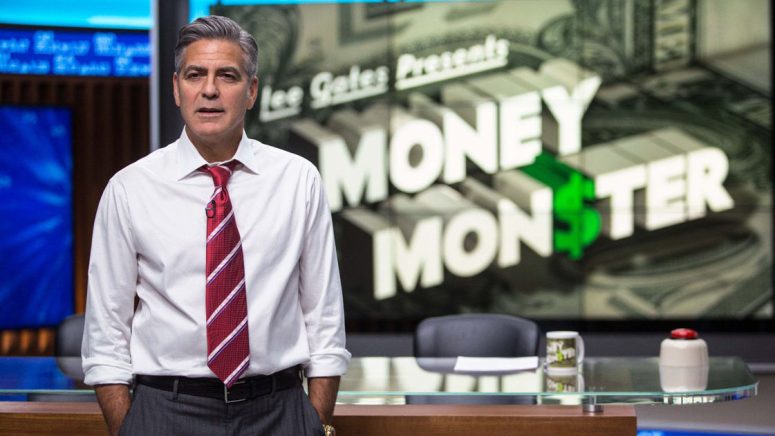
Courtesy MGM
If you’re reading this, I’m guessing you like money. What does money have to do with offline balance, though?
In my research, everything. Next to fame and sex—which by no coincidence are often facilitated by money—the latter is arguably the most sought after thing in life, particularly (but not exclusively) for male species.
For purposes of this newsletter, however, I won’t preach to you on the ill-guided focus of money or bottomless cup that is greed. Instead, I’ll let smarter people do it for me: Continue reading…

Courtesy Universal Pictures
Best-selling author Marshall Karp used to work in advertising. But then he realized he didn’t like what he was doing because the original architect was a lousy planner.
“This rut that you’re stuck in, this life that you’re trapped in, who planned it?” he writes on Quora. “Not you. Most of us form our life’s plans shortly after high school. I was pushing 40 and still living the dream of some teenage kid.”
So he decided to switch careers and become a screenwriter and author. “My Act Two was conceived, written, produced, and directed by an adult. And I’m grateful for the insight that convinced him to take on the job.”
Sage advice.

Yours truly surfing Lake Powell
Someone recently asked me what I’m excited about. “Oh, I don’t know,” I lied. Not because I didn’t have an answer. I just hadn’t articulated it yet.
After further deliberation, here is my answer: Continue reading…
As I often do, I cold emailed a bunch of people today asking if I could write for them. It was a great day. Not because one of them did this:
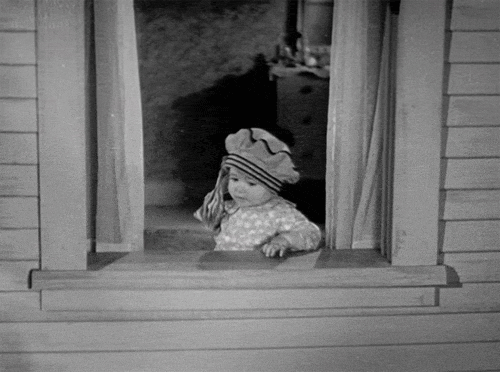
(They didn’t.) It was great because American strangers are wonderful to work with. They’re so freakin’ nice. Continue reading…
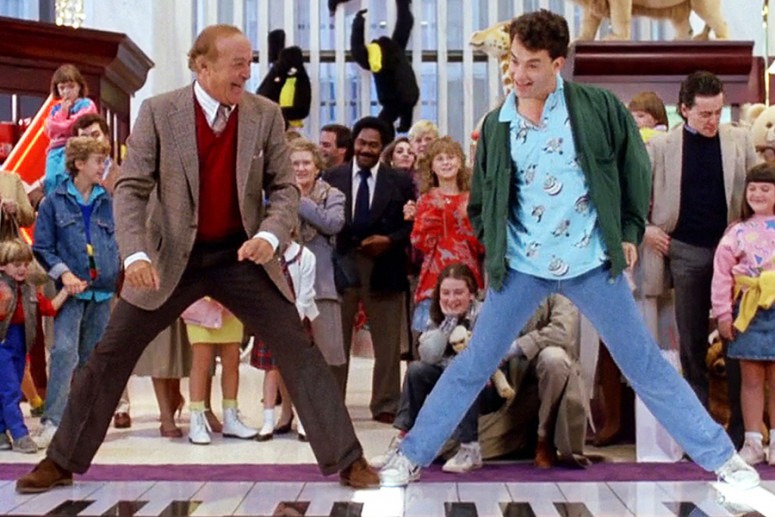
Twentieth Century Fox
When I was nine years old, I saw Big starring Tom Hanks. It’s a movie about a boy doing young-at-heart things in a grown-up’s body. That and being employed to have an opinion on (i.e. review) toys.
At the time, I thought it was the coolest movie ever made. I still think it’s pretty darn cool.
In reality, my work as a writer over the last decade is not unlike protagonist Josh Baskin’s. I get paid to have an opinion and ask a bunch of questions. I tinker with ideas, learn from those who are smarter than me, and slay the dragon of misinformation with research as my shield and a keyboard as my sword. Continue reading…
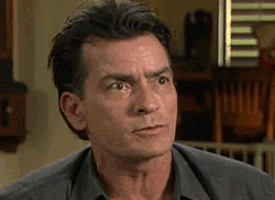 With two games remaining, my daughter’s soccer team is in second place. They’ve won nine games and lost one to the third place side which—while not as talented—understands that successful passing leads to more goals than successful dribbling or individuality. In other words, they play as a team more than my daughter’s side.
With two games remaining, my daughter’s soccer team is in second place. They’ve won nine games and lost one to the third place side which—while not as talented—understands that successful passing leads to more goals than successful dribbling or individuality. In other words, they play as a team more than my daughter’s side.
That same team has likely dropped more games than the three and a half players that impressively carry my daughter’s club because playing as a team for every game is difficult to achieve. It’s easier for great players to show up to every game than a reliable team.
In any case, my daughter’s “club” will square off against the first place team this weekend, and I suspect they’ll lose unless they listen to Michael Jordan: “Talent wins games, teamwork wins championships.”
To inspire more passing, teamwork, and selflessness, I hope they’ll consider my favorite quotes on teamwork as much as you might. They are as follows: Continue reading…

My defective lower lumbar
Thanks to genetics, I inherited two bad discs in my back, the neurologist told me. (Sorry kids, you’re next.)
For no particular reason, the first one broke six years ago. It laid me up for six straight weeks, forcing me to work lying down for a month and a half. After surgery, I could thankfully sit, run, and walk again with a normal gait.
I was also given a clean bill of health. “Blake, I’ve had patients scale Mount Everest and play two hours of basketball every morning for the rest of their lives after similar surgery,” the doctor told me. “Except for moving refrigerators and pianos, you have my blessing to do whatever physically adventurous things you want.”
I took his counsel to heart, got fit, ate more plants, and experienced a renaissance of outdoor exploits and saw a lot of wonderful things since then. In a way, breaking my back was the best thing to happen to me since marrying Lindsey, fathering children, and being awesome.
Now I get to do it all over. Last week, I broke my back again. Continue reading…
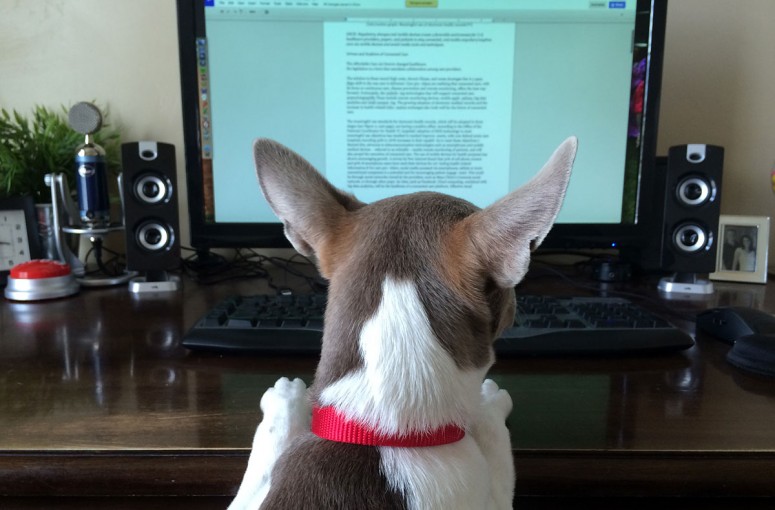
Photo: Blake Snow
Americans rank near the bottom in work-life balance because we work more than anyone, that much we know. (Caveat: We don’t work more than we used to, according to decades of research by John Robinson. We just perceive busy-ness as work and fill our free time with it. More on that later.)
But we don’t have to work as much as we do. Quite the opposite, in fact. “Researchers note that productivity rates have risen, which theoretically lets many people be just as comfortable as previous generations while working less. Yet they choose not to,” reports the New York Times. Even visionaries admit as much. “The idea that everyone needs to work frantically is just not true,” says Google CEO Larry Page. “Reducing the workweek is one way to solve the problem.”
I decided to do just that recently in switching from a five to four-day workweek. Like after I quit working nights and weekends, I won’t ever go back (given the choice). In four days, I’ve gotten just as much done as I did in five, because I waste less time now. As the forward-thinking Jason Fried explains, “Constraining time encourages quality time. When you have a compressed workweek, you focus on what’s important.”
So we have evidence that all this snazzy technology lightens our load, increases our productivity, and allows us to work less. And yet we still choose to work more than we need to. Why?! I’ve researched the issue for my book and came away with the following five answers: Continue reading…

Dell
My millennial brother-in-law chided me recently for using only a single monitor. “Get with the times,” he joked. “Two screens will boost your productivity.”
I’m normally confident about my technology use, but his remark surprised me since no one had questioned the size of my desktop display before. Keep in mind, I’ve worked from home for over a decade, so I don’t get to see how the Jones’ use computers at work. I don’t see their workspaces—only their faces over Skype calls or in conference rooms or voices over phones or words over email.
Self consciously, I began asking family and friends if they used dual monitors at work. “All the time,” said one. “Have for years,” said another. “Will never go back!” exclaimed a third. With exception to one, all my inquires said “yes.” Even my dad and father-in-law use dual screens at work. BABY BOOMERS MORE WIRED THAN ME??!! Continue reading…
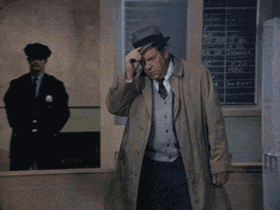
Imgur
And now a word from the department of horn tooting…
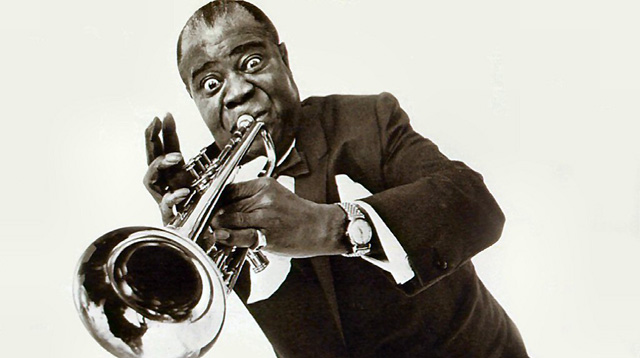
I just completed an eight month review of user experience and content strategy for a $5 million dollar software project. It was one of the most rewarding and elaborate gigs I’ve had the pleasure of working on in recent years. Continue reading…

I was searching for “internet authors” last week and stumbled on this man’s webpage, who dubs himself “the best-selling Internet author of all time.” I chuckled a bit upon reading his claim and seeing his photo, until I realized he knows what he’s talking about on at least one subject, How to get rich:
In the long run, it’s what you do day to day, over many years, that makes the difference. When you fall in love with what you do, and you work hard for a long time, you are offering the world your very best.
Think of the economy as a huge complex organism. If you learn to contribute in the right way, the economy will reward you. If not, you will be poor. The recipe for success and wealth is simple. Find the work that is best for you. Spend years engrossed in your work. Do a bit of long-term planning.
If you follow these guidelines, I can’t guarantee you will become a millionaire. What I do guarantee is you will live a useful, productive, happy life. And, over the years, that will be your very best chance of becoming rich.
I couldn’t have said it better myself, Harley. Although less than a third way through my planned 100 year life, I’ve found this to be the case for me. Do what you love, and monetary wealth will often find you.
At the same time, I’ll one-up what Harley said: Although millions can never be guaranteed, an enriched life can be guaranteed by following your passions. So you can get “rich” doing what you love in life, with the bonus being the best chance at finding monetary riches as well.
Either way, that’s how one gets “rich” in life.
Awkward photos with big furry cats totally optional.
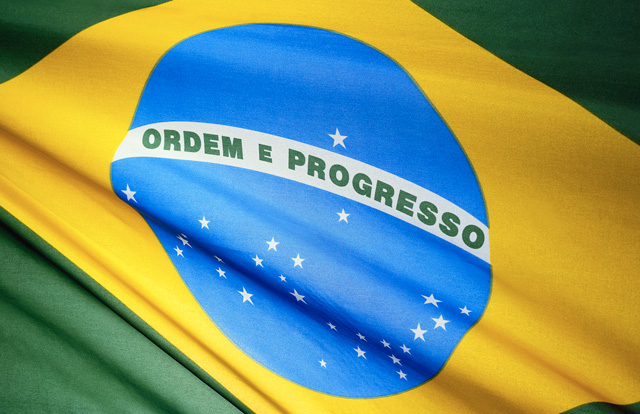
Make sure s/he pays you overtime for every email and after-hours request they send. Like they do in Brazil.
How you like them “Order and Progress”?
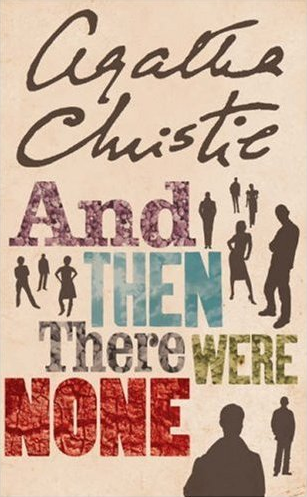 I have. On many occasions, in fact.
I have. On many occasions, in fact.
It all started in college. I’d head to class early to get a jump on my studies, get bored within 30 minutes, then open to whatever novel, biography, or paperback I had bookmarked for personal enjoyment. In the course of my four year, 63-credit undergraduate education, I’d do this several times each semester.
Once I remember ditching an entire day of classes — Neverending Story-style — just to read Dan Brown. I had only planned to skip my first lecture.
Oops.
I’ve even been know to play professional hooky from time to time. Deadline at work? Too bad, I gotta see how Tom gets out of his latest pickle.
Just today, I slotted in a few minutes of And Then There Were None underneath the backyard maple tree, after eating a delicious meatball sandwich (thanks, Lindsey). Once my mental clock chimed in telling me to get back to work, I consciously dismissed it just so I could see how soldiers five, six, and seven died.
(The book is bloody brilliant, btw. Not only that but it’s remarkably written.)
Admittedly, my boss is a softy and does a horrible job in tracking my time. But I can’t think of a better way of grabbing life by the horns than reading a book when you really should be doing something else.
That or an afternoon baseball game, whichever comes first.
See more: Books I’ve blogged about
 More here
More here
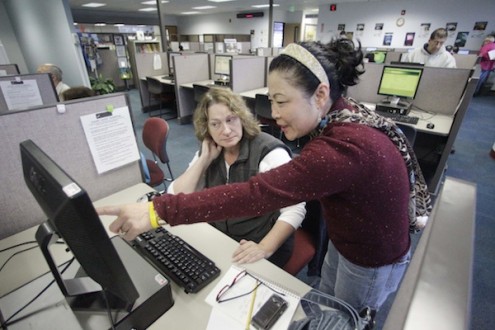 This is wrong.
This is wrong.
He did it by persuaded his friends that it would be a joyous privilege to whitewash a fence. Tom discovered, as Twain explained, “that Work consists of whatever a body is obliged to do, and that Play consists of whatever a body is not obliged to do.” Turn work into a game and people will play.
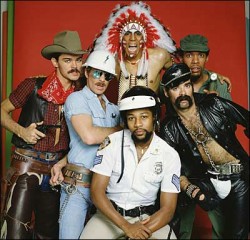 BBC recently cited a study that found the more friends you have, the more you earn. After observing 10,000 U.S. students over a period of 35 years, the study showed that the wealthiest people were those that had the most friends at school. Each extra school friend added 2% to the salary.
BBC recently cited a study that found the more friends you have, the more you earn. After observing 10,000 U.S. students over a period of 35 years, the study showed that the wealthiest people were those that had the most friends at school. Each extra school friend added 2% to the salary.
The take away: The more people you talk to (i.e. network with), the more chances you have to sell yourself as a likable person. The more likable you are in the eyes of others, the higher chance you have of being retained for professional help. That goes for “in school” and in life.
So don’t be an introvert. Talk to people. Take an interest. It takes a village.
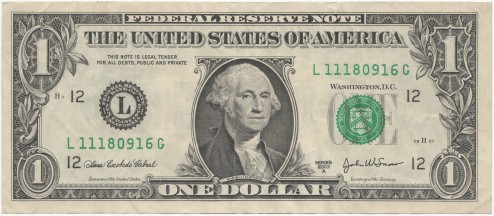
MSNBC published a story yesterday that confirms what many of us already know: The almighty dollar is a lot more elusive these days, as Americans are working harder for less money. That’s been my experience, as I have to scrap a lot more now to make deals happen. Thankfully, there are still deals. For that I’m grateful. But my Mom put it best when she said, “They party’s over!” It sure is, Mom. It sure is. The upside: I got complacent at the party. So the down economy has been just the kick in the pants I’ve needed to double my creative efforts. The paper chase lives on!

Credit: Lindsey Snow
Blog reader Derek Bobo asks via email:
I was wondering when and how you made the leap of faith to work for yourself. When did you know you were safe financially? What was the deciding factor, etc? I’m right on the brink but can’t seem to get myself to take the leap of faith.
Excellent question. Here’s my answer:
Continue reading…
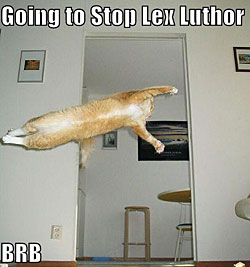 “Blake is abandoning the internet until Monday,” I wrote Wednesday afternoon on my Facebook status. It wasn’t a pithy attempt to grab attention. I meant it. And I’m happy to report that I stayed the course.
“Blake is abandoning the internet until Monday,” I wrote Wednesday afternoon on my Facebook status. It wasn’t a pithy attempt to grab attention. I meant it. And I’m happy to report that I stayed the course.
In doing so, I was able to unconditionally enjoy my family’s company during Thanksgiving. It also reinvigorated my professional spirits, ideas, and motivation as I turned to off-line content (you know, books). Granted, I rarely, if ever, have a case of the “Mundayz,” because I enjoy what I do. But today, I’m rearing to go, more than normal. And the break provided some much needed inspiration.
I’ve gone longer than four days without using the internet, namely during designated week-long vacations. But from now on, I’m committed to doing so on the weekends as well. What a novel idea, eh? Taking a break on the weekend.
Note: I’m (still) planning my attempt to ditch the Internet for an entire year
Steve Jobs told a class of Stanford undergraduates in 2005: “Your time is limited, so don’t waste it living someone else’s life,” meaning don’t let external factors such as other people’s thinking dictate how you make a livelihood. In short, do what you love.
But doing what you love is just some overused romantic expression that doesn’t really apply outside of über geeks like Jobs, right? Wrong. Despite its being cliché and having been hijacked by get-rich-quick schemes, doing what you love can be achieved by anyone assuming you have the patience to seek it out, have the guts to act on your instincts, and are not easily persuaded by societal pressures when determining your career path.
Continue reading…
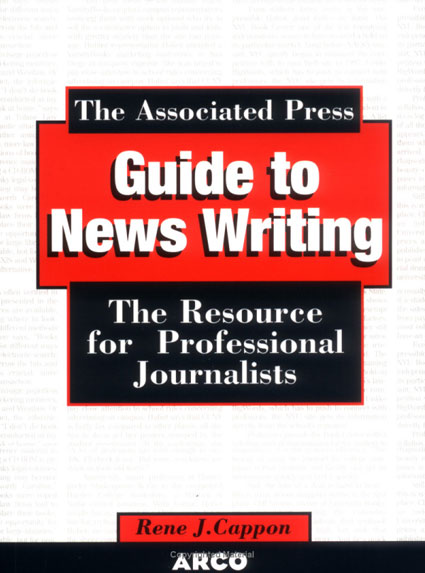 Write a lot. Then buy this book. Or vice versa.
Write a lot. Then buy this book. Or vice versa.
Don’t let the name mislead you—The AP Guide to News Writing will help you become a better writer of everything except maybe books. This quick and worthwhile read is full of helpful tips, professional counsel, and practical ways to further flex your prose.
Continue reading…

A New York lawyer quit his job to make a living as a Lego artist. After seeing his work, I’m sure he’s living well. Incredible.
What makes something the worst job ever? In my eyes, it’s a lack of excitement. The worst jobs in the world are boring. Yeah, Discovery’s Dirtiest Jobs Ever are pretty bad, but I’d like to think I’d pick one of those any day over boring work. Excitement = Happiness.
Before I describe the worst job I’ve ever had, let’s run down my list of employers and/or clients in chronological order: Chick-fil-A (first job), IBM (PC specialist), Lucent Technologies, Youth Soccer Coach (paid, baby!), Cingular Wireless (retail clerk), BYU Performing Arts (male secretary), BYU web developer, Griffio (my company, still a male secretary), Combat Films (freelancer), Weblogs Inc (blogger), Provo Labs (business incubator), Next-Generation (writer), GamePro (writer), and GigaOM (reporter/blogger). A large number of the latter gigs have been managed concurrently and are/were part-time.
Continue reading…
[youtube]http://www.youtube.com/watch?v=GYATbZmz5BU[/youtube]
But I still love technology…[via email]
My wife Lindsey is learning the piano taking formal weekly lessons. She used play when she was younger, but has since forgotten some of her chops. So for the last 6-7 months, she has been practicing often after she puts the baby down to sleep. The sweet sound fills our house. Though she doesn’t yet sound like Mozart, Liszt, or Beethoven, the aural harmony of progress, practice, effort, hard work, and dedication is music to my ears.
It’s very motivating for me to hear this change in action. My line of work is either visual, experiential, or cognitive so my ears don’t get to participate in gauging my development (if any). So outside of practicing musical instruments, I can’t think of many skills where you can hear actual progress aloud. Keep up the good work, Lindz!
Several months ago, I was conducting interviews on a panel for a company I worked for. The panel interviewed about 8 different individuals. Sadly, what I remember most about the process, even more than the two individuals that actually got hired, was the second prospective employee interview. He was a young buck right out of college, a little eccentric, and simply wasn’t what the position required. You could just tell.
After thanking the applicant for coming in, he stood up, pointed to himself with both thumbs in the air and said, “I’m your guy! Let me just tell you that I’m your guy!” Don’t tell me you’re my guy, show me! Worse still, who taught this kid to do this? Needless to say, it was an awkward moment.
I’ve had my fair share of bad interviewee experiences too, however. About three years ago, I was interviewed by Payless Shoe Source for some corporate position (don’t ask, not that there’s anything wrong with that, I’m just a Nike guy). The company had found my student resume while I attended BYU, and invited me to interview. I was flattered and obliged, but neither I nor the interviewer were impressed. I remember at the end asking him what he liked most about working for the discount shoe company, and his response was that he got to “wear business casual instead of suits.” It was awkward, funny, and yet, a little sad at the same time. I can’t imagine the primary reason for working somewhere to be the wearing of casual attire, that is, unless you have an unusual fetish for sweatpants.





 It’s not rocket science. To get the most of your day, we must do the following:
It’s not rocket science. To get the most of your day, we must do the following: I interviewed nearly two dozen experts this month (friends and strangers alike) for advice on my upcoming articles,
I interviewed nearly two dozen experts this month (friends and strangers alike) for advice on my upcoming articles, 
 If you’re able to organize your life without a calendar, I have two things to say: 1) You are a miracle; and 2) The following does not apply to you.
If you’re able to organize your life without a calendar, I have two things to say: 1) You are a miracle; and 2) The following does not apply to you.









 What does it mean to “work smarter, not harder”?
What does it mean to “work smarter, not harder”?







 With two games remaining, my daughter’s soccer team is in second place. They’ve won nine games and lost one to the third place side which—while not as talented—understands that successful passing leads to more goals than successful dribbling or individuality. In other words, they play as a team more than my daughter’s side.
With two games remaining, my daughter’s soccer team is in second place. They’ve won nine games and lost one to the third place side which—while not as talented—understands that successful passing leads to more goals than successful dribbling or individuality. In other words, they play as a team more than my daughter’s side.









 BBC
BBC 

 “Blake is abandoning the internet until Monday,” I wrote Wednesday afternoon on my Facebook status. It wasn’t a pithy attempt to grab attention. I meant it. And I’m happy to report that I stayed the course.
“Blake is abandoning the internet until Monday,” I wrote Wednesday afternoon on my Facebook status. It wasn’t a pithy attempt to grab attention. I meant it. And I’m happy to report that I stayed the course.
